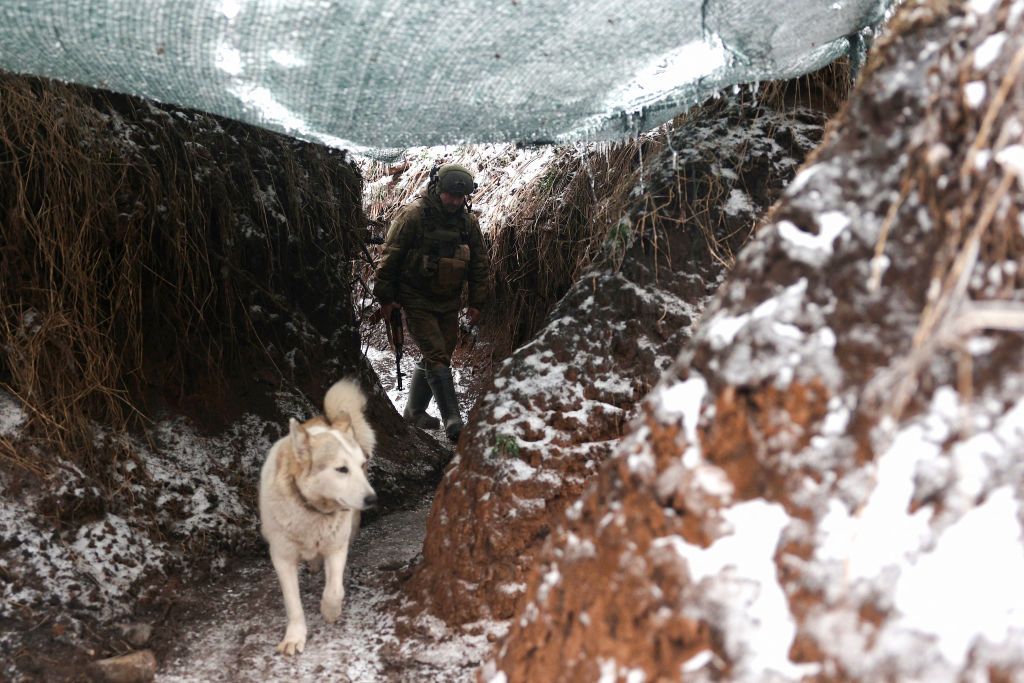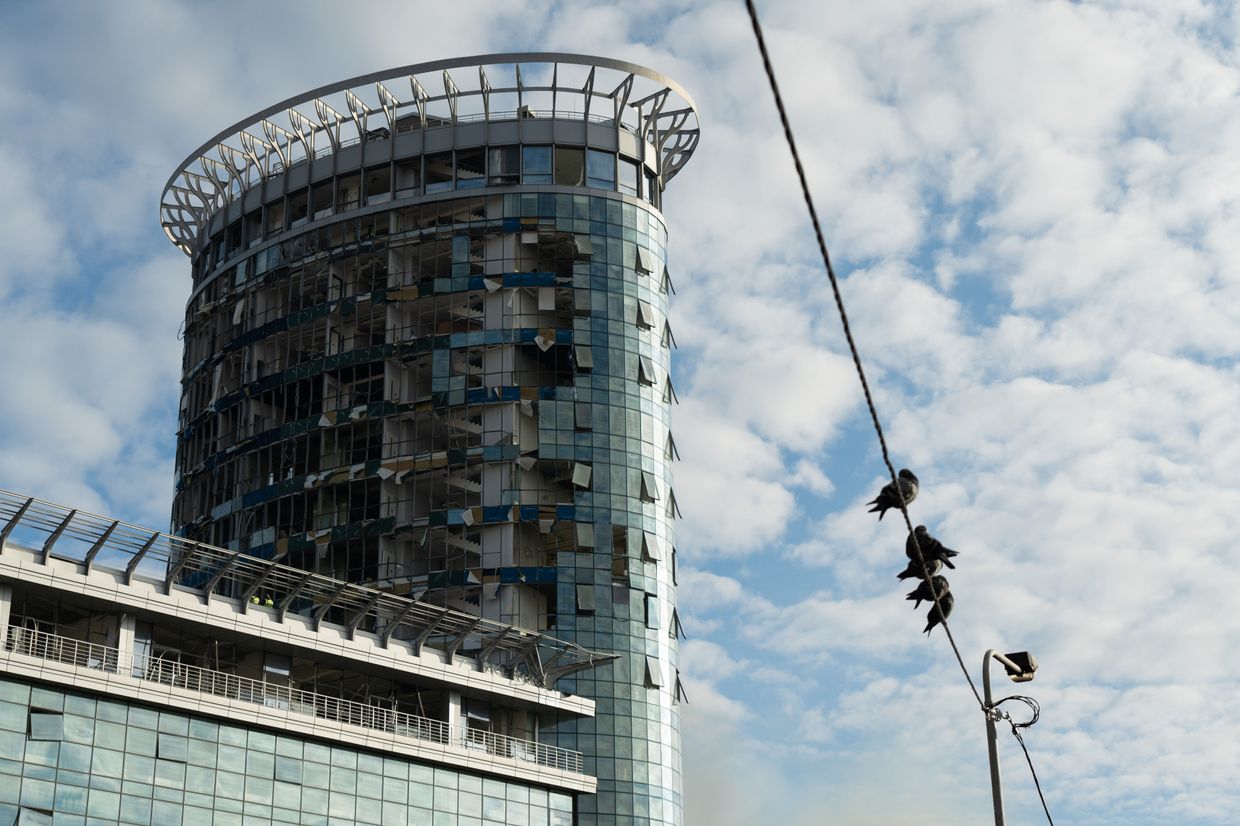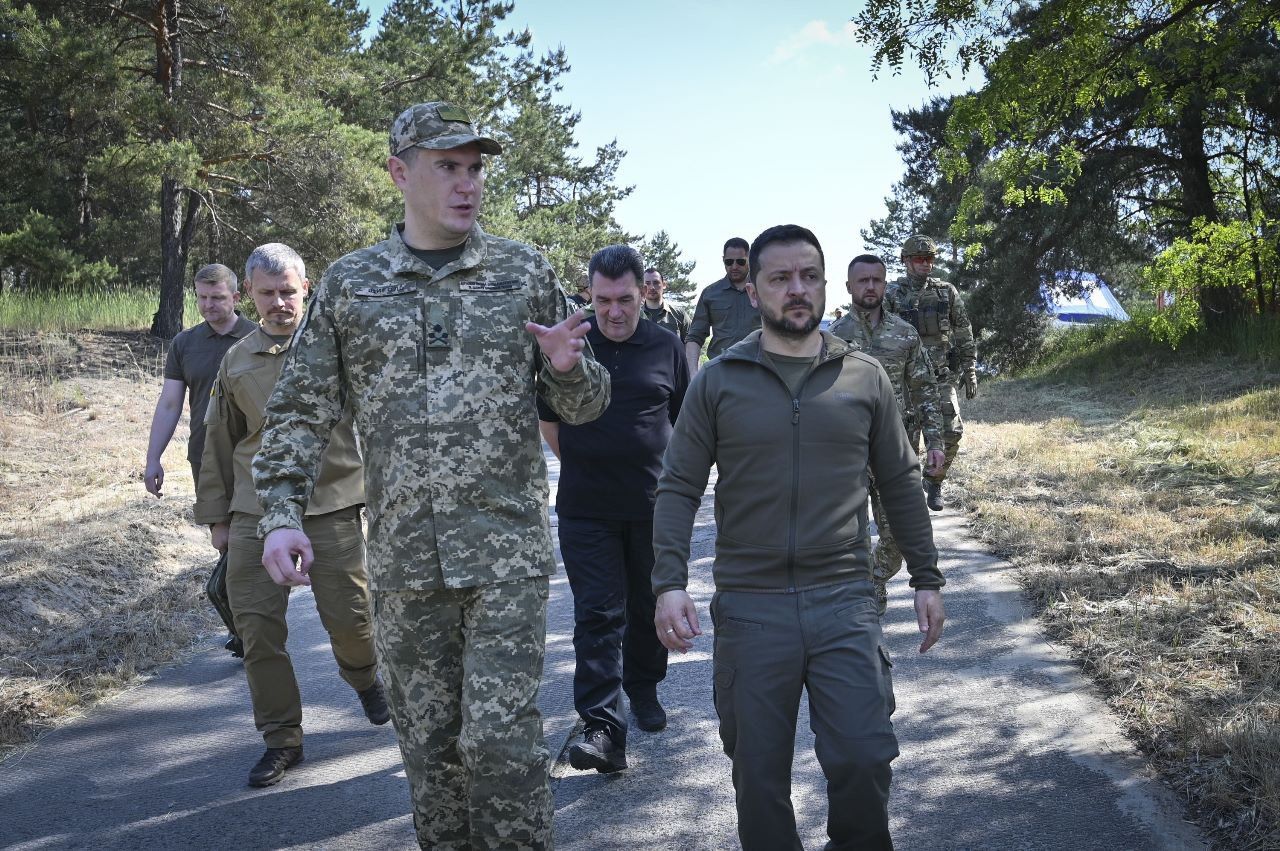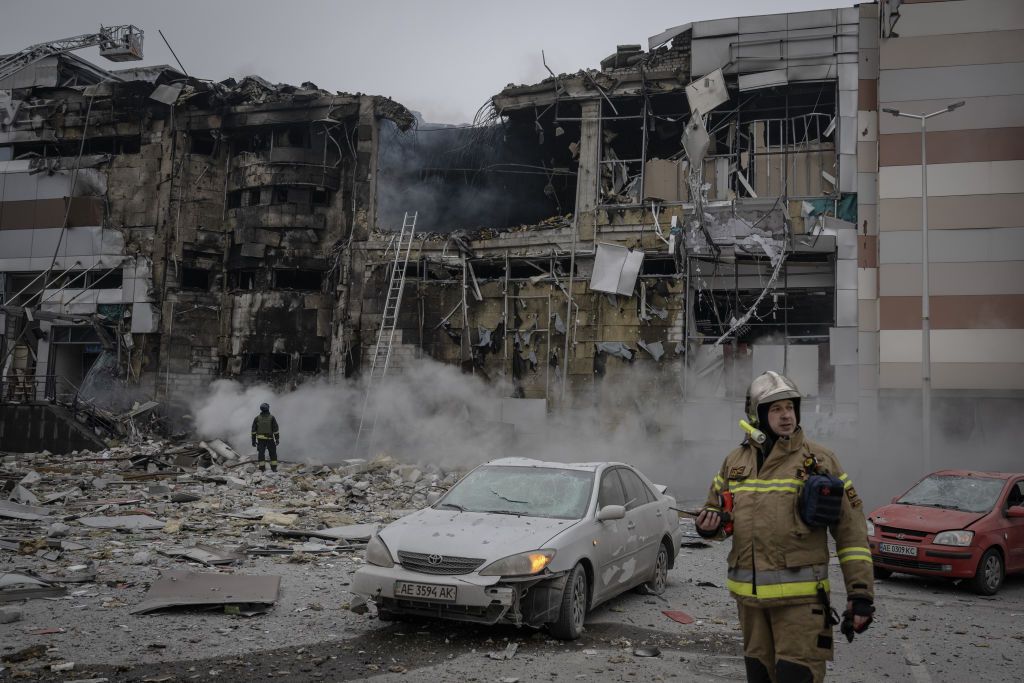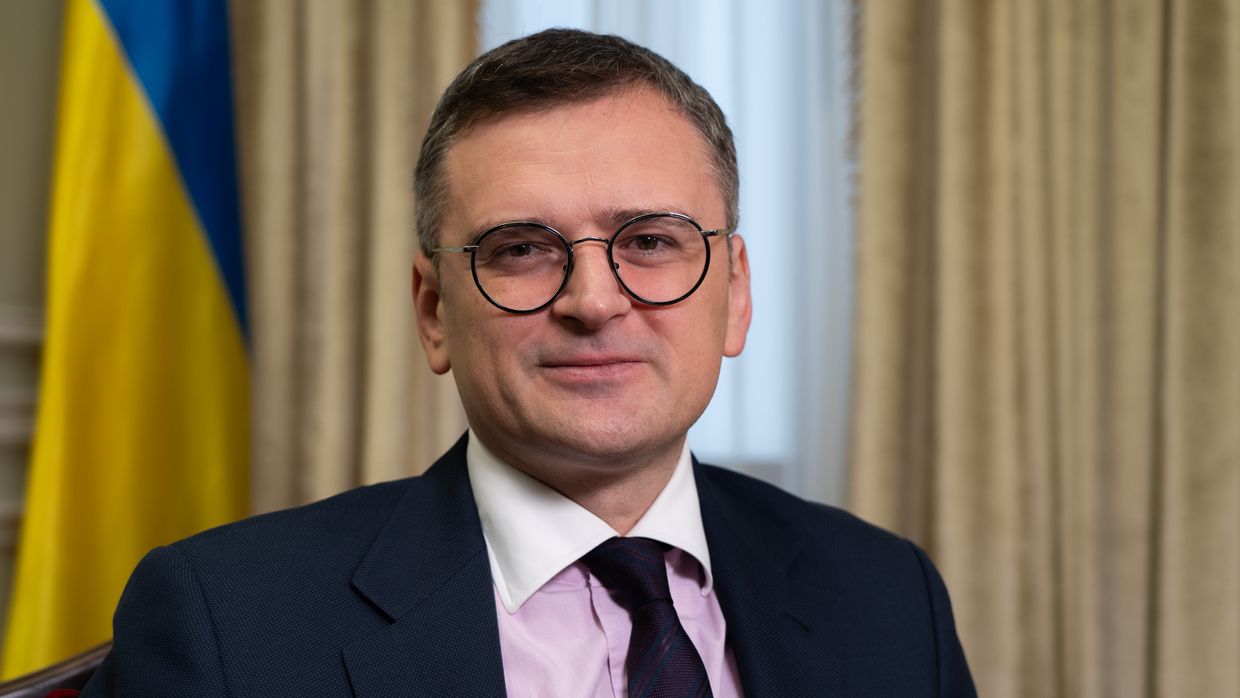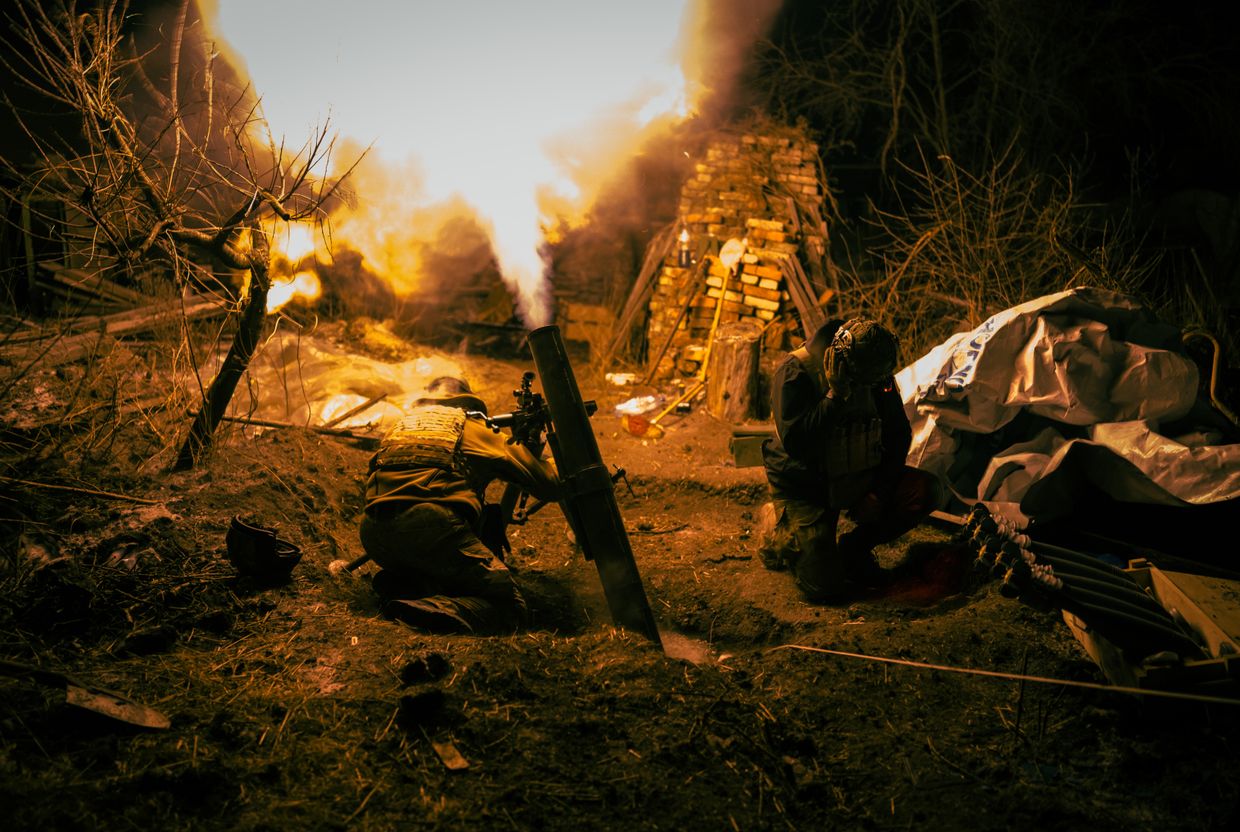Ukraine war latest: Defense minister, top commanders visit eastern front; drone reportedly hits oil depot in Russia

Key developments on Jan. 9:
- Umerov, Zaluzhnyi, General Staff chief and commanders visit army positions near Kupiansk in Kharkiv Oblast
- Drones reportedly hit oil depot, energy provider in western Russia, according to Russian officials' claims
- Media: Ukrainian hackers hit Russian internet provider, claim they are preparing 'revenge' for Kyivstar hack
- Official: Death toll of Russia's Dec. 29 attack on Kyiv rises to 33
- Bloomberg: Secret peace talks involving Ukraine, G7, neutral countries failed to produce results
- Reuters: White House gathers industry leaders to discuss defense tech for Ukraine
Defense Minister Rustem Umerov, Commander-in-Chief Valerii Zaluzhnyi, and Chief of the General Staff Serhii Shaptala visited Ukrainian army positions near Kupiansk in Kharkiv Oblast, the Defense Ministry reported on Jan. 9.
Liberated from Russian occupation during Ukraine's counteroffensive in September 2022, Kupiansk has been a critical target for renewed Russian offensives, as it serves as a key logistics hub for a potential push further south or west.
"I had the honor to meet with the commanders of the units that are fighting in this direction now," Umerov said.
The command of the Armed Forces and minister discussed the situation on the ground and the current challenges soldiers are facing, Umerov said.
Ground Forces Commander Oleksandr Syrskyi, who heads Ukraine's military operations in the east, also attended the meeting.
Syrskyi said on Dec. 11 that Russia is trying to capture the village of Synkivka in Kharkiv Oblast, hoping to pave the way for the blockade of nearby Kupiansk.
The U.S.-based think tank Institute for the Study of War (ISW) warned on Jan. 5 that Russian forces may scale up offensive operations in Kharkiv Oblast in an attempt to seize Kupiansk in the coming weeks.
However, the tempo of operations and configuration of Moscow's troops in the area does not suggest a major offensive "along the entire Kupiansk-Lyman line, similar to the failed Russian offensive effort in northeastern Ukraine in winter-spring 2023," the ISW said.
Umerov previously visited a military command post near Kupiansk with President Volodymyr Zelensky on Nov. 30.
Drones reportedly hit oil depot, energy provider in Russia’s Oryol region
Several drones struck "facilities of a fuel and energy complex" in Russia’s Oryol region on the afternoon of Jan. 9, the regional governor, Andrey Klychkov, claimed on Telegram.
According to Russian pro-Kremlin media outlet Mash, a Ukrainian kamikaze drone allegedly hit the Orelnefteprodukt oil depot, and another drone struck the building of a local energy provider, Oryolenergo. Three people were reportedly injured, Klychkov said.
Later, Klychkov claimed that the third drone fell on a non-residential building near Oryol. No casualties were reported.
The Kyiv Independent can't verify claims of Russian officials.
Klychkov attributed the attack to Ukraine, while Kyiv hasn’t claimed responsibility. Ukrainian authorities rarely comment on attacks inside Russia.
Explosions were reported on Jan. 8 at a railway track by an oil depot on the outskirts of the Russian city of Nizhny Tagil.
A fire erupted in a substation in Moscow on Jan. 4, causing electricity and heating outages in dozens of multi-story buildings, a few days after Russian attacks against Kyiv Oblast left 260,000 Ukrainian citizens temporarily without power.
Russia began intensifying its attacks against Ukraine's cities and critical infrastructure as the temperatures dropped at the end of 2023, mirroring its strategy from last year.
Over the winter of 2022-2023, Russia engaged in a persistent campaign to target Ukraine's energy infrastructure, causing large-scale outages and damage to the grid.
As the cold weather season began and Ukraine prepared itself for a likely repeat of the strategy, Zelensky said in late October that this year, Ukraine would "not only defend itself but also respond" to Russia's "terrorist attacks" on critical infrastructure.
Media: Ukrainian hackers hit Russian internet provider, claim they are preparing 'revenge for Kyivstar'
The Ukrainian Blackjack hacker group, had allegedly carried out a cyber attack against the Moscow Internet provider M9 Telecom, Ukrinform reported on Jan. 9, citing an undisclosed source in law enforcement.
Ukrinform's source linked the group to Ukraine's Security Service, or SBU. The SBU has not officially reported on the attack. The service's spokesperson has not replied to the Kyiv Independent's request for comment.
The report comes almost a month after a massive Russian-linked cyberattack against the Ukrainian phone operator Kyivstar, which caused massive internet and network outages across the country.
The alleged Ukrainian attack against M9 Telecom destroyed the provider's servers, deleting about 20 terabytes of data, which included the company's official website, branch websites, mail server, and cyber protection services, according to the source. As a result of the attack, some Moscow residents were left without access to the internet and television, Ukrinform, a Ukrainian state-run media outlet, wrote.
At the time of publication, the official website of M9 Telecom was operational.
The group has previously conducted a cyber attack against Rosvodokanal, a Russian water utility company, likely also with the support of the SBU, anonymous sources told Ukrainska Pravda on Dec. 20.
Ukraine came under a massive cyberattack on Dec. 12, which targeted Kyivstar, the largest telecommunications provider, and one of the country's most important banks, Monobank. People across the country reported internet and network outages, as well as issues with air raid alerts.
Death toll of Russia's Dec. 29 attack on Kyiv rises to 33
The death toll of Russia's Dec. 29 mass attack against Kyiv has risen to 33 as another body was found, Serhii Popko, the head of the Kyiv City Military Administration, said on Jan. 9.
Russia unleashed on Dec. 29 its largest air attack on Ukraine, targeting multiple cities, including Kyiv. Mayor Vitali Klitschko called it the deadliest attack on civilians in Kyiv since the beginning of the full-scale invasion.
According to Popko, the body of the 33rd victim was discovered under the rubble of a warehouse in Kyiv's Shevchenkivskyi District, one of the multiple buildings damaged in the attack on the capital.
Russian forces launched 158 missiles and drones at Ukraine early on Dec. 29, most of which were shot down by the country's air defenses. Over 50 people were reportedly killed, and over 160 more were injured nationwide.
Moscow has recently intensified its attacks against Ukraine's cities and critical infrastructure as the temperatures dropped, echoing its strategy from last year.
In the latest large-scale strike on Jan. 8, Russian troops launched 59 missiles and drones at Ukraine, killing at least five people and wounding 45 more, according to Ukrainian authorities.
Bloomberg: Secret peace talks involving Ukraine, G7, neutral countries failed to produce results
Representatives from Ukraine, the Group of Seven (G7) countries, and other less explicitly aligned countries such as India and Saudi Arabia, held secret peace talks in Riyadh in December, Bloomberg reported on Jan. 9, citing unnamed officials familiar with the meeting.
The talks failed to produce meaningful results, but are representative of the efforts by Ukraine and its allies to draw countries outside of the West into backing Ukraine's peace formula.
The 10-point peace plan calls for an end to ecocide in Ukraine, punishing those responsible for war crimes, withdrawing all Russian troops from the territory of Ukraine, restoration of Ukraine's territorial integrity, and the release of all prisoners of war and deportees. The proposals also call for ensuring energy security, food security, and nuclear safety.
The New York Times reported in late December that Putin was supposedly signaling behind closed doors that Russia would be open to a ceasefire along the current frontline.
Ukrainian and Western leaders have repeatedly said that they do not believe Russia is interested in good-faith peace negotiations and has not abandoned its maximalist war goals.
Aside from the G7 countries, representatives from India, Saudi Arabia, and Turkey attended. Other key players, such as China, the United Arab Emirates (UAE), and Brazil, were invited to the secret meeting but did not send anyone, sources said. Brazil sent only a written statement.
Russia was not invited.
While Ukraine's Western allies have largely remained steadfast in their support, countries in the global south have mostly refrained from taking a side in the conflict and have, in some cases, increased their ties with Russia.
India, in particular, has continued to keep dialogue open with both Ukraine and Russia, while declining to openly condemn the full-scale invasion or contribute to Russia's isolation.
Saudi Arabia, the UAE, and other Middle Eastern countries have been courted by both sides. Russian President Vladimir Putin visited both countries in December 2023, his first trip to the region since 2019.
Zelensky traveled to Saudi Arabia for the first time in May, meeting Saudi Crown Prince Mohammed bin Salman and appealing to Arab leaders to support Ukraine's peace plan.
Since Saudi Arabia hosted a summit on Ukraine's 10-point peace formula in August, Zelensky has held a call with the crown prince on a near-monthly basis.
The fourth meeting on Ukraine's peace formula is scheduled to be held ahead of the World Economic Forum (WEF) in Davos from Jan. 15-19.
Reuters: White House gathers industry leaders to discuss defense tech for Ukraine
White House officials convened industry representatives from the venture capital, technology, and defense sectors on Jan. 8 to discuss strategies for arming Ukraine with up-to-date weapons systems, Reuters reported.
U.S. National Security Advisor Jake Sullivan arranged the meeting, which lasted five hours and included key members of the National Security Council as well as executives from companies such as Fortem Aerospace, Palantir Technologies, and drone producer Skydio.
The meeting aimed to promote "renewed emphasis on helping Ukraine overcome these key technological challenges that they have identified as inhibiting their progress and momentum on the battlefield," senior administration officials told reporters.
Another senior official detailed the specific areas of technological need the leaders discussed.
"The conversation focused on a number of systems, including unmanned aerial systems, how to counter incoming unmanned aerial systems, and then also addressing the demining challenge," the official said.
Sullivan attended parts of the meeting himself, while his deputy Jon Finer led a portion of the event.
Officials said after the meeting that the conversation was a chance to learn about state-of-the-art systems from a cross-section of U.S. industries. The U.S. government hopes it can bring these new capabilities to Ukraine's battlefields.
The officials also pointed out that little progress can be made unless Congress unblocks the billions of dollars in supplemental funding that President Joe Biden has requested for Ukraine. The aid package remains tied up in partisan battles over U.S. border and immigration policy.
The Jan. 8 meeting was not part of the December agreement between the U.S. and Ukraine to increase weapons production, officials said.
Ukraine's Lieutenant General Serhii Naiev warned in November 2023 that the war could expand beyond the country's eastern and southern regions if Russia continued to improve its technology capacities.
Naiev told ABC News that technological strength outweighs how many munitions each side has.


